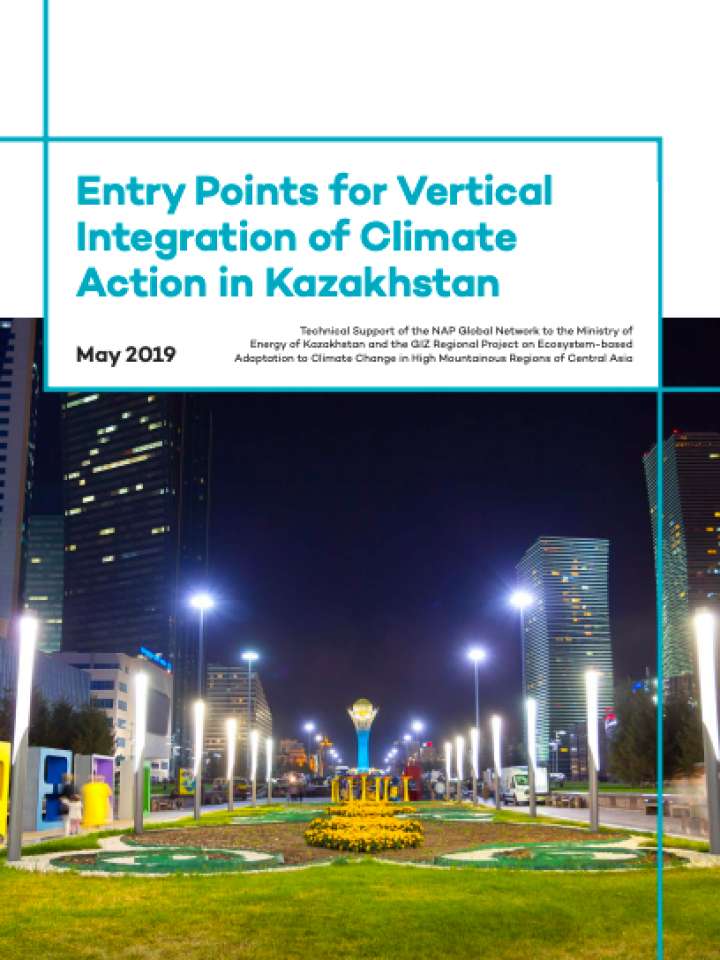Entry points for vertical integration of climate action in Kazakhstan
This study aims to identify potential ways to use existing institutional mechanisms to strengthen sub-national level adaptation planning capacities in Kazakhstan to ensure the successful implementation of identified adaptation measures. For that, the study identifies two means of strengthening national and sub-national level links and enabling the integration of climate adaptation at the sub-national level: sub-national development programs and national strategic documents.
The findings of this study should facilitate communication among governmental bodies and international organizations, while presenting a guiding proposal for potential next steps. Sub-national Kazakh executive bodies seeking to establish a climate adaptation planning process usually face three main challenges:
- Collection of information related to climate trends and future climate change scenarios
- Development of capacities on conducting a comprehensive RVA, elaboration and prioritization of adaptation measures
- Accessing budgets for implementing adaptation measures.
In 2018, the provincial government of Eastern Kazakhstan developed a regional climate adaptation plan with the support of the GIZ program for Ecosystem-Based Adaptation (EbA). Climate information was collected from Kazakhstan’s 7th National Communication to the UNFCCC and provided to sectoral departments by local and international experts, who helped them identify climate risks and appropriate adaptation measures. Additionally, Kazhydromet2 provided support on the explanation of climate change scenarios. However, due to budget limitations, the provincial government has not yet been able to implement the identified adaptation measures.
Three key lessons can be drawn from this pilot exercise on adaptation planning in Eastern Kazakhstan Province:
- Although existing information on climate change scenarios is limited, though it is sufficient to conduct RVAs.
- In order to conduct an RVA, as well as the elaboration of adaptation measures at the subnational level, capacity development is necessary.
- Available financial resources through budgets are crucial to ensuring the implementation of any climate adaptation planning.
The central challenge is the integration of climate-related finance for the implementation of sub-national adaptation measures. Hence, the study investigates how to use existing planning and budget mechanisms for current development programs to implement identified adaptation measures. However, access to climate information and sufficient capacities for risk assessment and adaptation planning are required to convince budget planners.
Explore further
